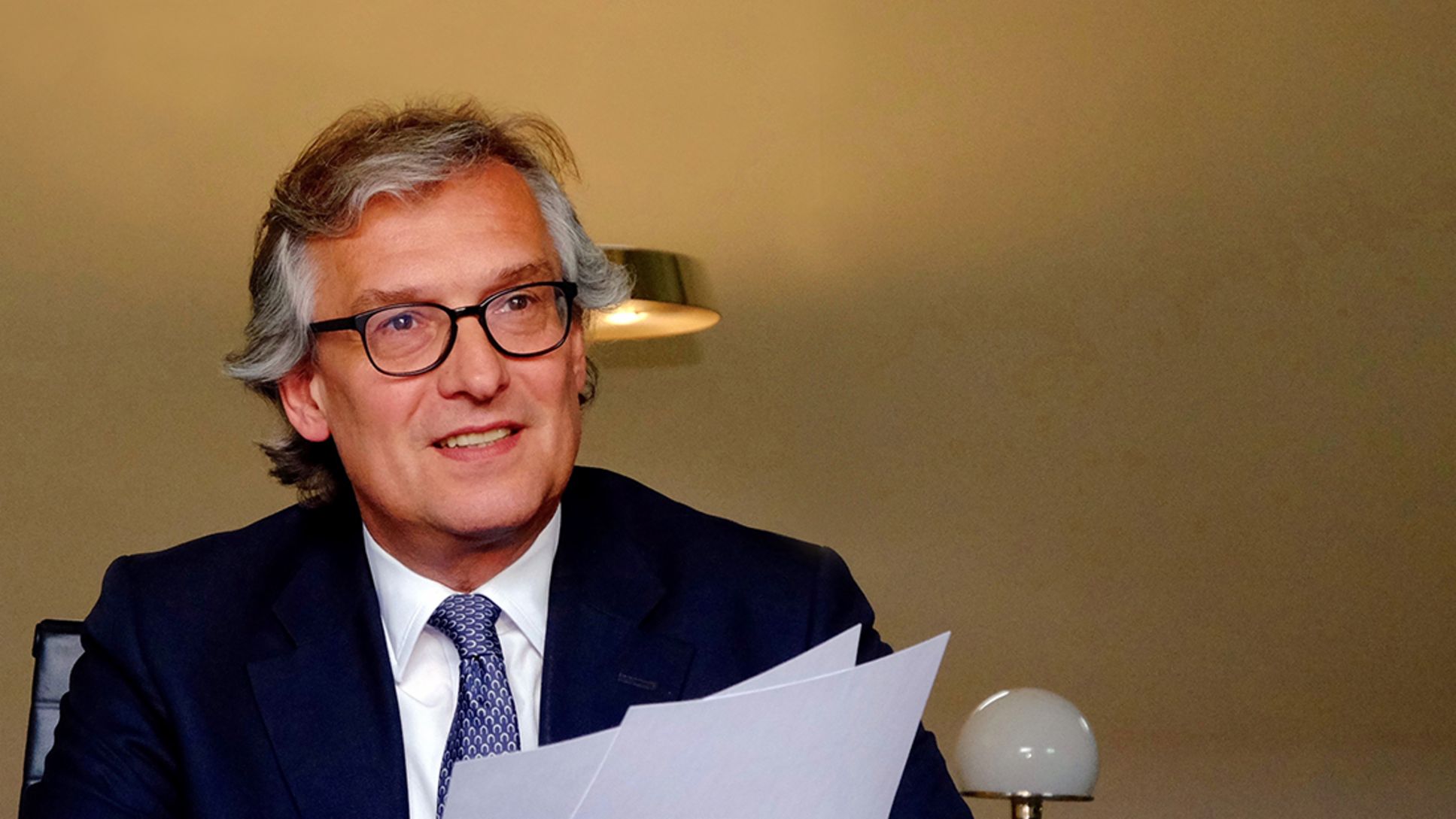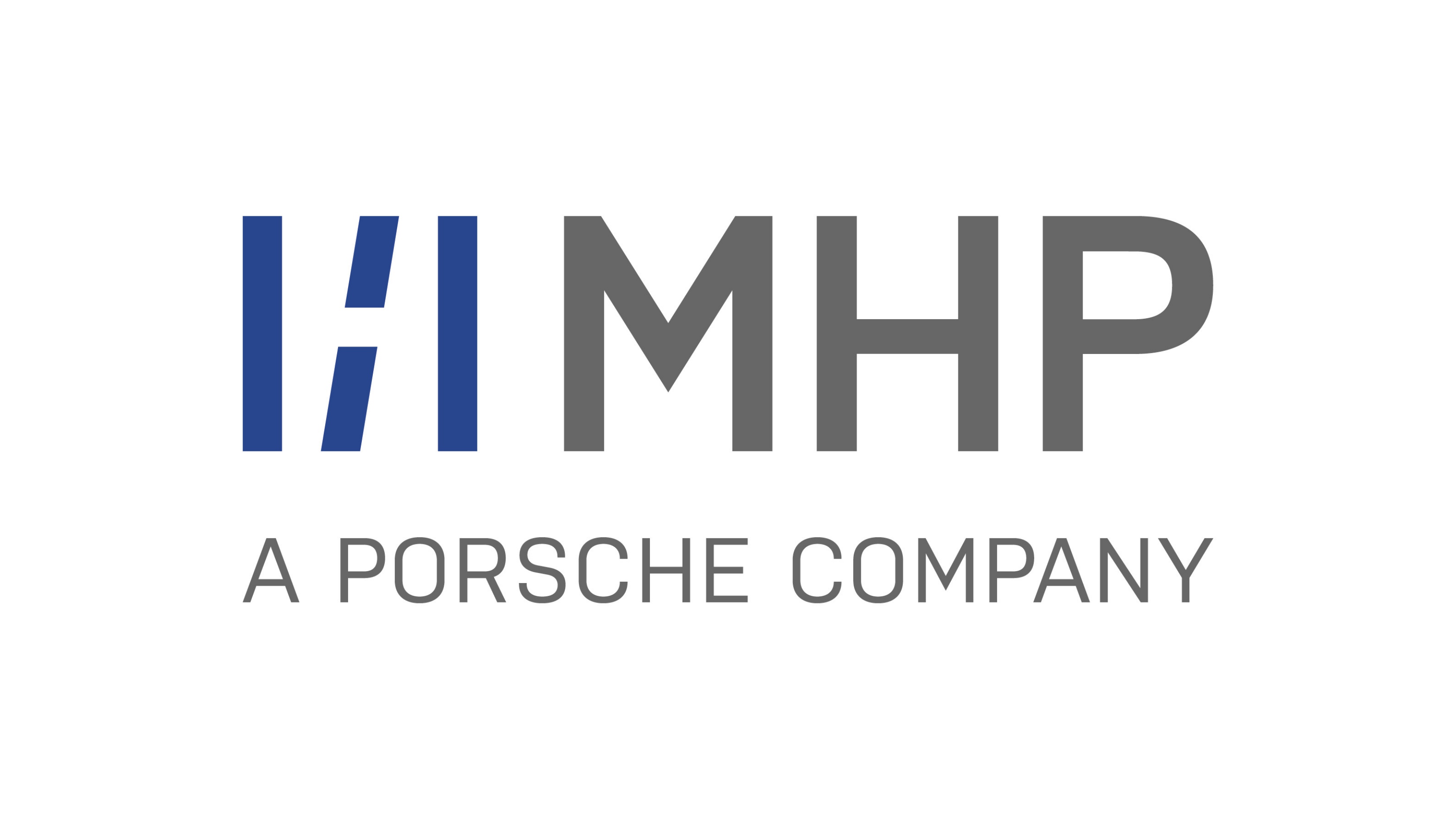Dr. Hofmann, twenty years ago you and Dr. Lutz Mieschke formed the management and IT consulting company MHP. What was your motivation for this step and what were you aiming at?
Dr. Ralf Hofmann: Lutz Mieschke and I had met back in 1994 when we worked for the IBM subsidiary SerCon. After that, each of us worked as a free-lance IT consultant in the SAP field. Lutz Mieschke did Finance and Controlling, while I worked with Human Resources. During that time we kept in touch and at some point we decided to join forces, to become MHP and jointly operate in the market. On May 2, 1996, we started together with three employees in Karlsruhe-Ettlingen.
Why did we take this step? There are many reasons. In the mid-nineties, the perspectives for people with SAP expertise were just great. At that time, many companies began to systematically digitalize their business processes from end-to-end. Often enough SAP supplied the software for this venture. There was much to be done, and thanks to our SAP expertise we had excellent start-up conditions.
At the same time, we liked being self-employed – wanted to make our own decisions and were keen on building our own business. We started as a very small company, but were very ambitious and from day one we wished to make MHP something special. And, I dare say, we achieved our goals quite well.
As early as in 1999 Porsche acquired a share in MHP. How did that happen and how did that affect the development of MHP?
Following the formation of MHP, the company soon performed very well: the number of projects increased steadily, just like the number of employees. What was also important was that we shaped our services in our own, distinctive way. Actually, we have never been merely an IT consulting firm, but we have always taken our customers’ processes into consideration. We wanted to improve them in order to create a true added value for these companies. This symbiosis of process and IT consulting convinced many customers of our approach – and still does.
So this was our situation when we were part of a Porsche project as an IBM subcontractor in 1998. At that time, Porsche had embarked on making its own IT more agile in order to remain responsive, to ensure a higher flexibility, and to meet the demands of steady growth. Our small company – at that time there were 38 of us – offered right this: We were a powerful team with good ideas and the right know-how. In addition, at that time we already possessed excellent automotive expertise. Porsche had experienced all this first-hand during their own project and so we became a 51 per cent subsidiary of Porsche. Following the withdrawal of Lutz Mieschke from the MHP management, Porsche acquired the current 81.8 % per cent share.
The Porsche shareholding shaped our company in that our focus on the automotive industry became even stronger – with Porsche, a powerful partner, in the background. We wanted to be THE automotive expert among the consulting companies – and that is a clear differentiating factor.
Over the past 20 years you have transformed a start-up into a company with almost 1,500 employees and revenue of EUR 235 m. How do you explain this success?
Well, this is certainly a combination of several factors: the pre-conditions were good. We had a sought-after know-how and highly motivated, competent staff. In addition, we could set ourselves apart from our competitors thanks to your consulting approach and the sharp focus on automotive.
Certainly, the Porsche shareholding was an important and decisive factor. We still benefit from the strength, success and long-term experience of our parent company. At the same time, of course, Porsche was and is an important key customer.
However, Porsche realized and accepted at an early stage that MHP is a consulting company for the entire automotive industry. And, thus, MHP managed to build an external customer base alongside this great partnership with Porsche. Today, our customer base includes the entire ‘Who is Who’ of the automotive industry – manufacturers, suppliers and dealers. We are a Porsche subsidiary and, at the same time, a reliable partner of many other brands.
Currently, digitization is on everyone’s mind. How will this trend change the automotive industry over the next years?
One thing is for sure: Digitization is not merely a trend. “Whatever can be digitized, will be digitized,” as the former HP head Carly Fiorina predicted many years ago. Indeed, I support this view.
Digitization will bring about a fundamental change in the entire industry. This is due to the fact that it severely challenges the rules of the automotive industry that had been valid for more than 100 years.
In the past, manufacturers sold cars – including a certain lifestyle. However, in future, connected cars will additionally constitute devices in the ‘Internet of things’. That way it will become possible to offer a whole range of new services via the car. And this trend will revolutionize our world. For the established manufacturers – such as Porsche – this is not only an opportunity, but actually a necessity to tap new sources of revenue with new business model. At the same time, there is a risk that new players will enter the market. The automotive ecosystem is no longer the closed cycle it used to be. OEMs will have to learn to deal with this.
What does this transformation mean to MHP?
In my opinion, MHP is well positioned – after all, essentially, MHP has been engaging in digitization for twenty years. Not only do we understand technology very well, but we also know exactly how to shape the reality using this new technology. We can bring these strengths together in a creative manner in order to develop and implement business models for the mobility of the future in cooperation with manufacturers, suppliers and dealers.
Finally, a personal question: Which model do you drive at present and what do you like most about it?
I really enjoy driving my Porsche Panamera Diesel. The design is great, the driving characteristics are excellent. But what I like best about it is the incredible range: 1,100 kilometers! I am enthusiastic about it every single time.
About MHP
MHP – A Porsche Company MHP is a leading consultancy – primarily for the automotive industry – and a subsidiary of Porsche AG (81.8%). The unique MHP approach to consulting is based on the symbiosis of management and IT consulting services. MHP, as a process supplier, optimizes and digitizes customer processes throughout the value chain with its expert services in the fields of Management Consulting, System Integration, Application Management and Business Solutions. At present, more than 1,500 employees serve more than 250 customers world-wide out of 13 locations in Germany (Ludwigsburg (2), Frankfurt am Main, Munich, Nuremberg, Essen, Wolfsburg, Berlin), Switzerland (Zurich/Regensdorf), the UK (Birmingham), the US (Atlanta), China (Shanghai), and Romania (Cluj-Napoca). The MHP philosophy: Excellence. MHP – Excellence in Management and IT-Consulting for Automotive.
Consumption data
Panamera Diesel: Combined fuel consumption: 6,4 l/100 km; CO₂ emissions: 169 g/km

